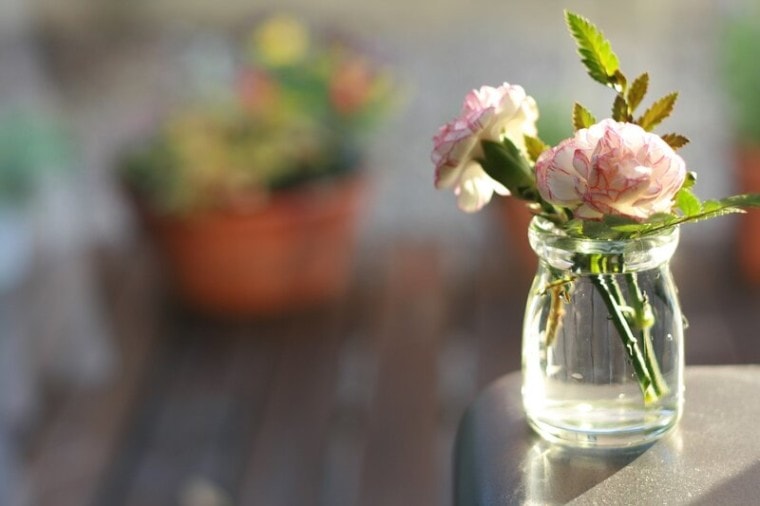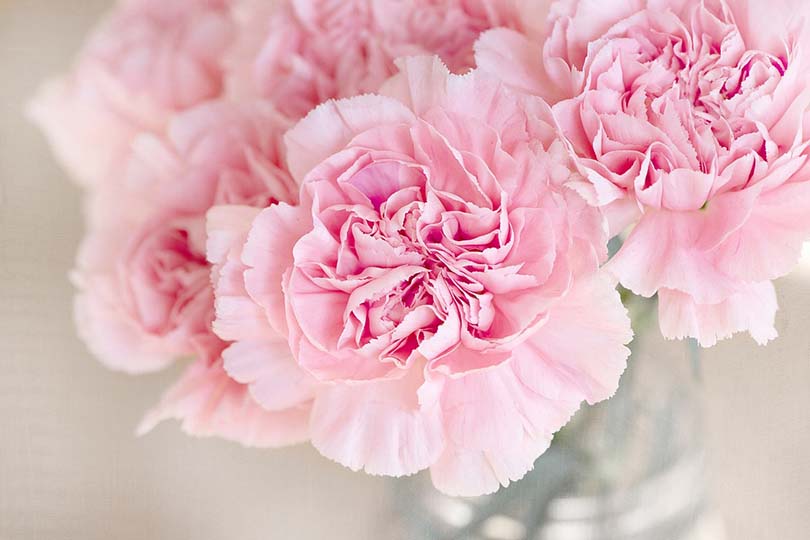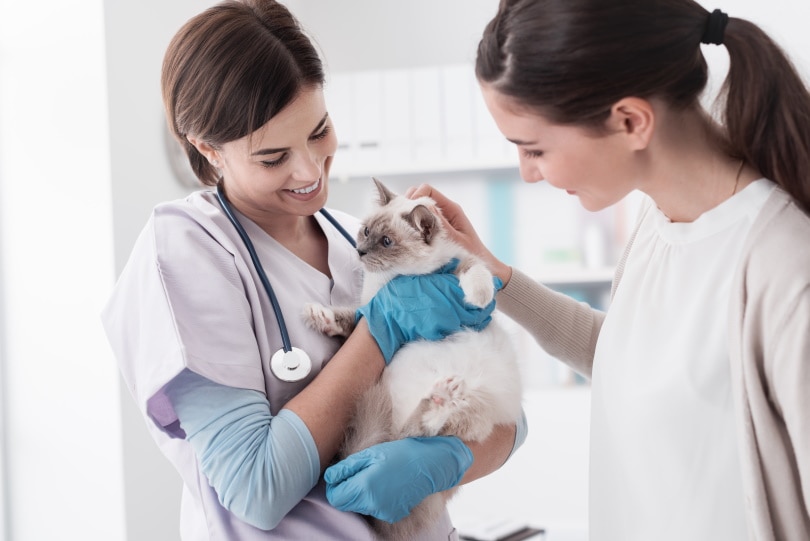
Carnations are a preferred perennial in many homes and gardens. These flowers are pretty to look at and will stay fresh for a long time once they’ve been cut. These are only a few of the reasons carnations are included in so many bouquets and flower arrangements.
Unfortunately, not every human and animal can enjoy the sweet scent and physical appeal of these gorgeous flowers.
Many humans find themselves allergic to certain flowers and plants. While their symptoms may range from mild to severe, avoidance of the particular plants is the best course of action. When it comes to carnations, humans aren’t the only ones who have issues. Animals do as well, especially cats.
You may be asking, are carnations toxic to cats? The answer is yes, they are toxic; although the signs of carnation poisoning may not be severe for all cats, some may have larger issues than others.
Let’s take a look at carnations, cats, and the reasons why the two shouldn’t mix.
How Serious Is Carnation Poisoning?
No one wants to think their cat has eaten something poisonous. While carnation poisoning usually results in mild signs, the more a cat ingests, the worst it can become. To keep your cat from experiencing this type of stressful situation, keeping them away from carnations is your best option.
All parts of a carnation are toxic to your cat. Whether your cat eats the stem or the flower itself, most likely they will show signs of upset. For most cats, the sickness will pass. For cats, simply coming into contact with the sap of these plants is enough to cause contact dermatitis and irritation. If you have a curious kitten or a cat that has a tendency to play around plants, you probably want to avoid keeping carnations in your home.

Carnation Poisoning Signs
While no pet parent wants to see their cat sick, carnation poisoning is rather mild when compared to illnesses caused by other plants. While there is no true course of treatment for this poisoning, it is still best to seek professional help from a veterinarian if the gastrointestinal issues or skin irritation are too severe. This will ensure your cat doesn’t become dehydrated while they are sick. Your vet can also induce vomiting if your cat needs it.
Treatment and Recovery
Unfortunately, there isn’t a lot your veterinarian can do for carnation poisoning, but you still take your cat in for a visit. Your veterinarian may need to induce vomiting by using an emetic drug. This, coupled with intravenous fluids, will help flush your cat’s body of the toxins they’ve ingested. Your veterinarian may also introduce medicines to coat your cat’s stomach and help protect it from further irritation from the carnation’s sap.
Luckily, for most cats, recovery takes only a few hours. Your kitty’s veterinarian may suggest some ways to entice your cat to drink more water in hopes of flushing out any remaining toxins. If this is the case, follow their advice, and hopefully, your cat will be back to its old self in no time.

Can I Stop My Cat Eating Carnations?
Trying to tell a cat what to do is a huge undertaking. As anyone who owns a cat knows, they can be quite stubborn when they want to be. Keeping them away from carnations or other dangerous plants is no different. If the temptation presents itself, they will most likely become curious.
The best way to keep your cat from eating toxic carnations is not to have them in the house or garden. That’s not always practical, however. If you plan on presenting carnations in your home, keep them in areas your cat can’t access. Planting carnations near the house is another big issue, especially if your cat goes outside. If you simply can’t live without carnations in your garden, plant them in areas your cat doesn’t frequent. Also, avoid planting them near other plants your cat may be attracted to like catnip.
Other Toxic Plants

Carnations are not the biggest worry cats face when it comes to the world of plants. Here’s a list of a few houseplants that you should avoid if you have cats inside the home.
 In Conclusion
In Conclusion
While carnations are beautiful to look at, if you’re a cat parent, it may be best to avoid bringing them into your home. Cats are curious creatures and must investigate everything. Plants and flowers are no different. While carnations are toxic to your cats, always remember they aren’t the worst plant out there. Before bringing a cat into your home, be aware of what plants are dangerous to them. With many plants being deadly to animals, knowledge is your best weapon.
It is also important to be a responsible pet owner and keep an eye on what your cat is eating or chewing on. This is another great way you can keep them safe from toxic plants and the illness they can cause. By doing this, you and your kitty can spend many wonderful years together.
You may also be interested in:
- Are Peonies Poisonous to Cats? What You Need To Know!
- Are Birds of Paradise Toxic to Cats? Vet Approved Facts & Safety Guide
Featured Image Credit: Pixabay






